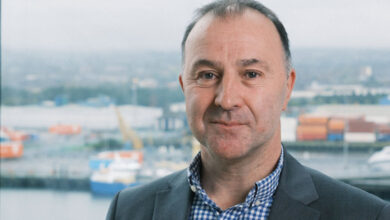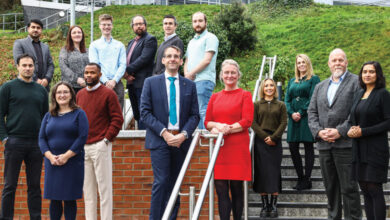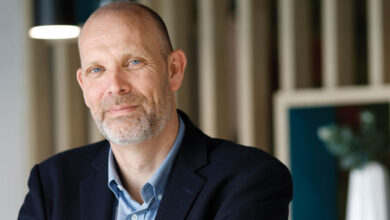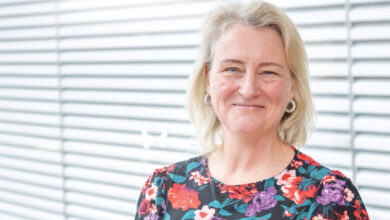Shared services for health
 BSO Chief Executive David Bingham outlined his organisation’s plans for shared services for the health and social care sector at agendaNi’s ICT Forum.
BSO Chief Executive David Bingham outlined his organisation’s plans for shared services for the health and social care sector at agendaNi’s ICT Forum.
“Stories are best told when the journey is over,” David Bingham reflected when speaking at agendaNi’s seminar on shared services. “I’m telling mine and the journey is only starting. I’ll be judged, no doubt, in years to come about where we get to.”
The Business Services Organisation (BSO) was set up by the Review of Public Administration in April 2009 and provides a range of support services to the health and social care sector.
Outsourcing was ruled out at an early stage in the planning process for shared services.
Bingham sees a “fundamental difference” between the professionally-led common services and business services, which rely more on staff giving advice based on protocols. The latter would be delivered by shared services using new business systems; some of the current versions date back 30 years.
This change is being brought forward through the Business Services Transformation Programme. All health and social care organisations are involved, on ministerial instructions. Bingham observed that if shared services were “purely voluntary” in the public sector, there would be a lack of will to develop them.
The first phase for health and social care is due to begin in April 2011 but depends on several decisions being made. It covers:
• finance;
• procurement and logistics;
• human resources;
• payroll;
• travel and subsistence.
A programme board, with representatives from trusts and all other major HSC organisations, oversees its governance and sits over four project boards. The BSO is responsible for delivering the programme and is accountable to the board, the Health Minister and the department.
“My own personal philosophy here has been that we should make the procurement process drive the rest of the process,” he said. “We can’t introduce shared services until we have our new systems implemented.”
The BSO aimed to sign the contracts for systems by next summer. Keeping the procurement schedule was the programme’s “biggest challenge”; procurement needed to be done properly and with pace.
Originally, the BSO planned to build two purpose-built shared services centres at a cost of £20 million. That capital funding is no longer available and the organisation has identified alternative sites within existing Health Service buildings. It now plans to establish three centres and expects costs to be low, compared with rented facilities.
A consultation document on options for a centre was due to be published by the end of the year but a decision was unlikely before the next Assembly election.
BSO staff are based in 14 different locations across Northern Ireland. The organisation started with 800 staff, and now has 650. It aims for 450 posts when the new centres are up and running.
Bingham emphasised the importance of working with staff and trade unions to maximise ‘win-wins’ i.e. “the vast majority of staff will actually get what we desire and we get what we need.” He was optimistic that this could be achieved if planning started now and vacancy controls, retaining and transfers were used.
The Health Service, he noted, had aimed to achieve £50 million in savings through RPA. £45 million has been achieved so far and shared services could account for the remaining £5 million. As well as cost reduction, he added: “Building that business relationship with the customer, being responsive to them in our systems, in the product that we deliver, is vitally important.”





